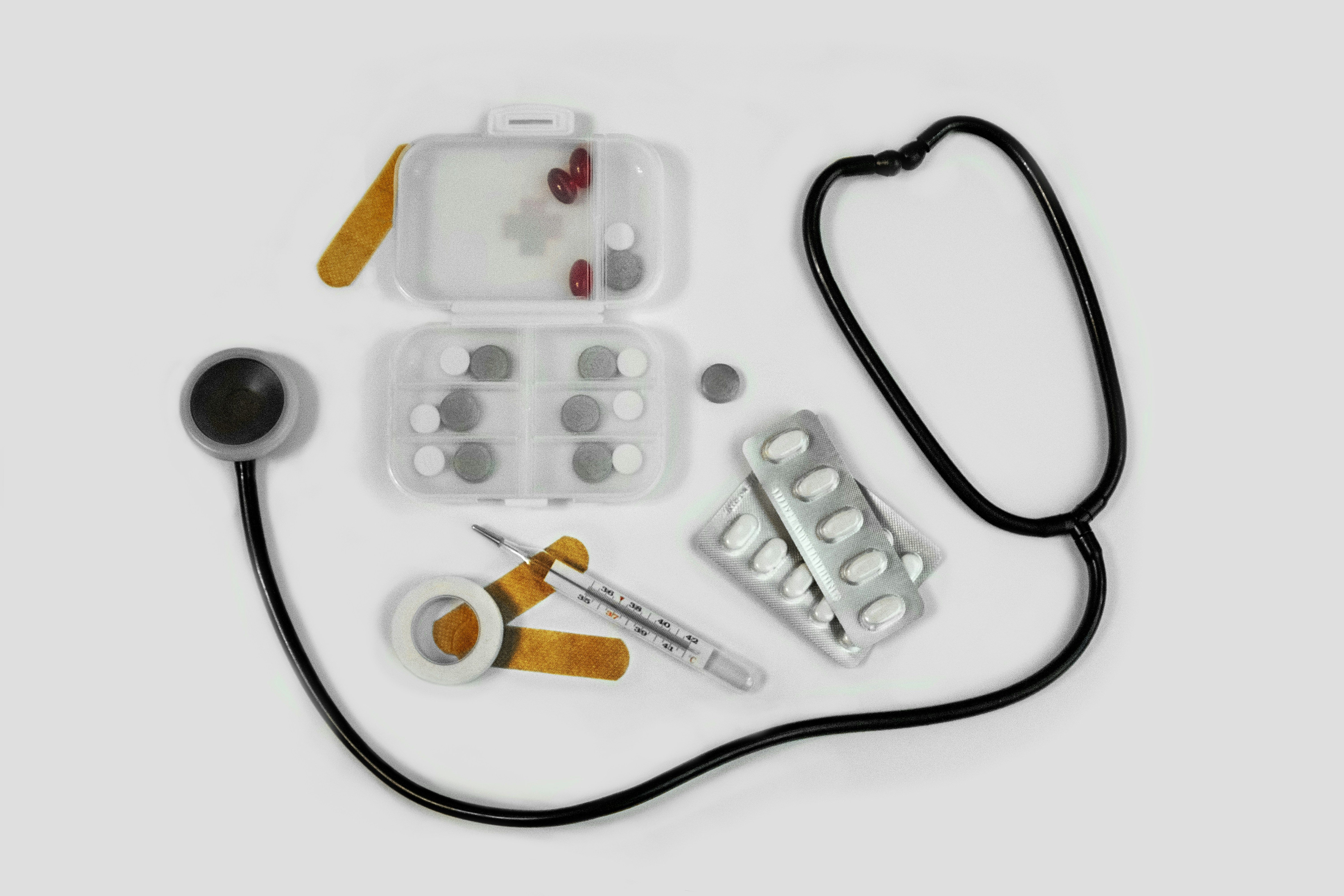Published at December 19, 2024
Looking for fast STD testing? Quick results are essential for timely treatment and peace of mind. This guide covers everything from what to expect during the testing process to where you can get confidential and rapid results.
Key Takeaways
- Fast STD testing provides rapid results within 1-2 days, promoting timely diagnosis and treatment, which is essential for curbing the spread of infections.
- Confidentiality in STD testing encourages more individuals to seek help, with legal protections like HIPAA ensuring personal health information is safeguarded.
- Rapid testing enhances healthcare outcomes by enabling early detection and immediate treatment for STDs, significantly reducing the risk of serious health complications.
Understanding Fast STD Testing
Fast STD testing represents a significant advancement in sexual healthcare, providing rapid results that are typically available within 1-2 days. This speedy turnaround is crucial for timely diagnosis and treatment, helping to curb the spread of infections and prevent complications. Additionally, same day std testing helps ensure that individuals can access the care they need promptly.
Traditional and rapid testing differ significantly. While conventional tests might require a week or more for results, rapid tests can deliver outcomes in minutes. This efficiency not only alleviates stress but also ensures that individuals can act promptly on their results, safeguarding their health and that of their partners.
Why Speed Matters in STD Testing
Rapid STD testing plays a pivotal role in public health by enabling timely care. Early detection prevents the spread of infections. It also helps mitigate serious health issues like infertility, organ damage, and the increased risk of HIV transmission. When results are available within a day or two, as seen with services like STDCheck, patients can make swift, informed decisions about their health.
Moreover, sharing testing results with partners fosters trust and ensures mutual health safety, contributing to a healthier community overall. The quicker the results, the sooner individuals can engage in necessary conversations and take appropriate actions, promoting a culture of responsibility and care.
Types of Rapid Tests Available
Several types of rapid tests are available, each designed to detect specific STDs such as HIV, a syphilis test, gonorrhea, and chlamydia. These tests often involve a urine sample, blood sample, or a swab from an affected area, offering rapid results that can be ready in minutes.
Rapid testing is particularly beneficial for infections that are often asymptomatic, such as chlamydia and gonorrhea. Identifying these hidden infections early through rapid tests can prevent long-term health complications and further transmission, making these tests a critical component of effective STD management.
Benefits of Fast STD Testing
The advantages of fast STD testing extend beyond just quick results. A primary benefit is the immediate peace of mind from knowing your status swiftly. When test results are delayed, the uncertainty can cause significant anxiety and stress. Rapid tests alleviate this by providing results in minutes or within a few days, allowing individuals to move forward with confidence.
Additionally, fast STD testing plays a critical role in early detection, which is vital for effective treatment and better health outcomes. Prompt treatment after an STD diagnosis can prevent complications and further transmission, ensuring that individuals receive the care they need without unnecessary delays.
Quick Results for Immediate Peace of Mind
One of the most profound benefits of fast STD testing is the rapid delivery of results, often within just a few minutes. This quick feedback can significantly reduce the stress and anxiety that accompany waiting for test outcomes. Knowing your status almost immediately allows you to make informed decisions about your health and take necessary actions without enduring prolonged uncertainty.
Confidentiality is another crucial aspect that enhances peace of mind. Ensuring that test results remain private encourages more individuals to seek testing, knowing that their information will be protected. The combination of fast results and confidentiality supports individuals in managing their sexual health with confidence and ease.
Early Detection for Better Health Outcomes
Early detection through rapid testing can lead to the most effective treatment available, significantly improving health outcomes. For instance, quick identification of HIV infection or syphilis allows for prompt intervention, reducing the risk of serious health problems and enhancing the effectiveness of treatment.
Rapid tests for STIs such as chlamydia, gonorrhea, and hepatitis B are highly accurate and can detect infections even when there are no symptoms. Regular testing is crucial for sexually active individuals, as it helps catch infections early and prevent their spread, promoting overall sexual health and well-being.
How Fast STD Testing Works
Fast STD testing is designed to be quick, painless, and efficient. The process usually involves providing a urine sample, blood sample, or a swab from an affected area. These samples are then analyzed using various rapid testing methods that can deliver results in a short time frame. An std test can help identify any potential issues early on, including std test results.
Testing can be conducted at numerous locations, including doctor’s offices, clinics, and even at home, offering flexibility and convenience. The primary goal is to provide timely healthcare, ensuring that individuals receive accurate results and necessary treatment without unnecessary delays.
The Testing Process: What to Expect
During the STD testing process, you may be required to provide a urine or blood sample, or a swab of body fluid. These procedures are typically quick and straightforward, often taking only a few minutes. The samples are then sent to a lab for analysis, where advanced techniques are employed to detect the presence of any sexually transmitted infections.
The simplicity and speed of the testing process make it accessible and less intimidating for individuals, encouraging more people to get tested regularly and maintain their sexual health.
Interpreting Your Test Results
Interpreting your test results is straightforward but crucial. Rapid tests for certain STDs, like an HIV test, can provide results in about 20 minutes. A negative result typically means no infection was detected, while a positive result indicates the presence of an STD, necessitating follow-up testing or immediate treatment to manage the infection. HIV testing is an important step in this process.
Not all STD tests yield immediate results; some may take several days or weeks. It’s important to understand what your results mean and to follow up with your healthcare provider for further guidance and treatment options if needed.
Where to Get Fast STD Testing
Fast STD testing is widely accessible, with numerous locations offering these services to meet your std testing needs. You can get tested at doctor’s offices, clinics, public hospitals, or even at home with online testing kits. This flexibility ensures that testing is convenient and accessible to everyone.
Additionally, there are over 4,500 testing centers available, providing ample options for individuals to choose a location that best suits their needs. Online platforms like STDCheck offer FDA-approved methods and a personalized Test Recommender to help individuals select the appropriate tests.
Choosing the Right STD Clinic
Selecting the right STD clinic is crucial for accurate testing and treatment. Planned Parenthood and local health departments are excellent resources for affordable and confidential STD screening and treatment. Many clinics offer walk-in services, allowing for immediate testing without the need for an appointment.
It’s important to choose a clinic that values confidentiality and maintains high-quality standards. Clinics like Advance ER ensure that care is provided in a private and comfortable setting, with strict measures to protect patient privacy.
Online and At-Home Testing Options
For those who prefer privacy and convenience, online and at-home testing options are available. Platforms like STDCheck provide at-home testing kits that can be ordered online, allowing individuals to get tested in the comfort of their own homes through private std testing.
These kits offer the same accuracy as in-clinic tests and are an excellent option for those who value discretion.
Confidentiality and Privacy in STD Testing
Confidentiality is a cornerstone of STD testing, encouraging individuals to seek testing and treatment without fear of stigma or discrimination. Clinics and online services use various methods to protect personal information and test results, such as secure data storage and patient ID codes.
Legal protections like the Health Insurance Portability and Accountability Act (HIPAA) ensure that patient privacy is maintained, restricting unauthorized access to personal health information. Choosing reputable testing services that prioritize confidentiality is essential for protecting your personal information.
Ensuring Your Privacy
To ensure privacy, clinics and online testing services implement robust measures such as secure data storage, patient ID codes, and anonymous testing options. These practices help protect personal information and test results from unauthorized access.
Legal frameworks like HIPAA safeguard patient privacy, ensuring that only authorized individuals have access to your health information. This encourages more people to seek necessary testing and treatment without fear of exposure.
Legal Protections for Patients
Patients have legal rights that protect their STD-related information from unauthorized disclosure. Healthcare providers cannot share STD information without explicit consent from the patient, except in certain legally mandated situations. Violating patient confidentiality can result in severe legal repercussions for healthcare providers, including civil and criminal penalties.
These legal protections are crucial in maintaining trust and ensuring that individuals feel safe and comfortable seeking STD testing and treatment.
Treatment Options Following Fast STD Testing
Following a positive test result, immediate treatment is essential to prevent further spread of the infection and to manage symptoms effectively. Rapid testing facilitates early treatment, which can significantly lower the risk of severe health complications.
Patients should return for follow-up care and support after being diagnosed with an STD. Services like STDCheck provide guidance and support, ensuring that individuals receive the necessary treatment and care.
Effective Treatments for Common STDs
Bacterial STDs such as gonorrhea and chlamydia can be effectively treated with antibiotics. Early detection through rapid testing allows for prompt treatment, preventing long-term health issues related to sexually transmitted diseases.
For viral STDs like HIV and genital herpes, antiviral medications are typically used to manage symptoms and reduce viral load. Timely treatment is crucial for managing these infections and maintaining overall sexual health.
Follow-Up Care and Support
Follow-up care is vital after initial treatment for STDs. For bacterial STDs, a second round of testing three months later is recommended to ensure the infection has been fully cleared. If the follow-up test is positive, immediate treatment should be initiated to manage the infection.
Those who use at-home tests should follow up with an in-office test if they receive a positive or suspicious negative result. Contacting a healthcare provider for confirmation and treatment ensures comprehensive care and support. If they test positive, it is crucial to seek further medical advice.
Preventive Measures to Stay Healthy
Preventing STDs is as important as treating them. Engaging in safe sex practices, such as using condoms consistently and correctly, can significantly reduce the risk of contracting STDs. Regular STD screening is also crucial for sexually active individuals to detect infections early and prevent their spread.
Maintaining sexual health requires a proactive approach, including regular testing and open communication with sexual partners about STD status. These preventive measures help individuals stay healthy and reduce the risk of serious health problems.
Safe Sex Practices
Practicing safe sex is crucial for reducing the risk of contracting STDs. Using condoms consistently and correctly can lower the likelihood of infections significantly. Limiting the number of sexual partners and having open discussions about STD status with partners also contributes to safer sexual practices.
Combining these practices provides a comprehensive approach to maintaining sexual health and preventing the spread of infections.
Regular STD Screening
Regular STD screening is a critical component of sexual health. It is recommended for anyone who has had unprotected sex, multiple partners, or a new partner. Regular testing helps detect infections early, ensuring timely treatment and preventing the spread of STDs.
Even in long-term monogamous relationships, regular screening is advisable to maintain sexual health. By staying vigilant and getting tested regularly, individuals can protect themselves and their sexual partner from potential health problems.
Summary
In summary, fast STD testing offers numerous benefits, including rapid results, early detection, and effective treatment options. By choosing reliable testing services and maintaining confidentiality, individuals can manage their sexual health with confidence and ease. Regular screening and safe sex practices are essential in preventing STDs and ensuring overall well-being. Taking proactive steps towards sexual health not only protects you but also contributes to a healthier community.
Frequently Asked Questions
How quickly can I get my test results with fast STD testing?
You can typically receive your test results from fast STD testing within minutes to 1-2 days, offering a much quicker turnaround than traditional methods.
What types of STDs can be detected through rapid testing?
Rapid testing can effectively detect several STDs, including HIV, syphilis, gonorrhea, chlamydia, hepatitis B, and herpes simplex. It's crucial to get tested regularly for timely diagnosis and treatment.
How is my privacy protected during STD testing?
Your privacy is protected during STD testing through secure data storage, the use of patient ID codes, and anonymous testing options provided by clinics and online services. This ensures that your personal information and test results remain confidential.
What should I do if my test results are positive?
If your test results are positive, promptly consult your healthcare provider to confirm the results and discuss treatment options. Early intervention is essential for effective management and prevention of further issues.
Why is regular STD screening important?
Regular STD screening is crucial for early detection and treatment of infections, which can prevent serious health issues. It's particularly important for sexually active individuals, especially after unprotected encounters or with multiple or new partners.


